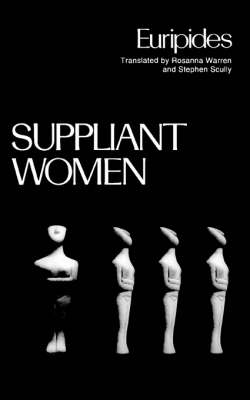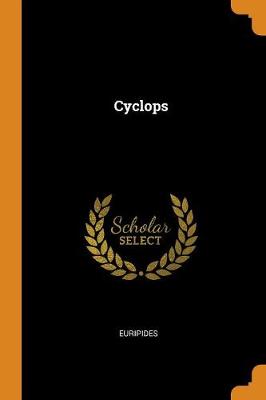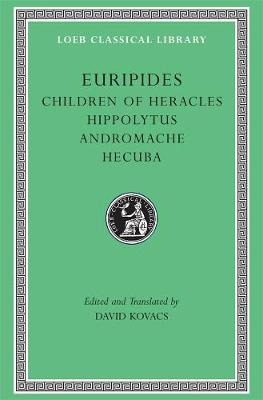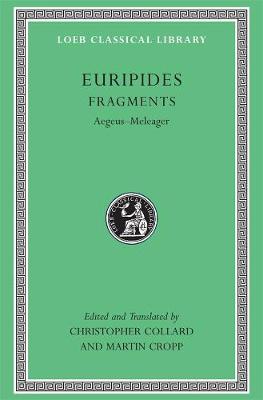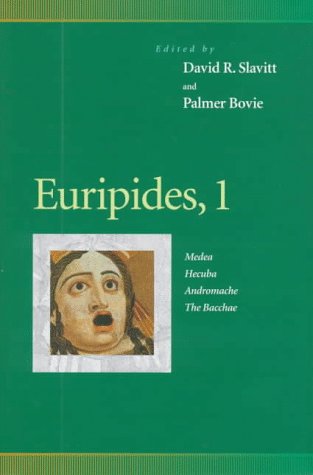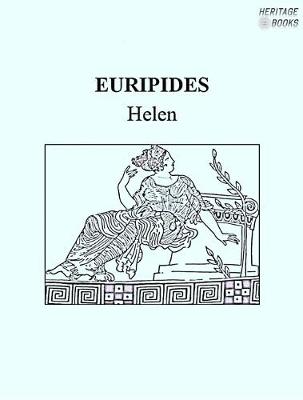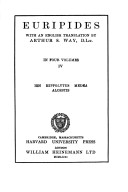Loeb Classical Library
6 primary works • 8 total works
Book 9
Book 10
Book 12
origins, development, and decline; the place of satyrs in the religious imagination and practice of the Greeks, and the significance of Euripides' divergences from the Homeric model, are also examined. The commentary looks closely at problems of text, language, and interpretation.
Book 484
One of Athens' greatest poets, Euripides has been prized in every age for the pathos, terror, surprising plot twists, and intellectual probing of his dramatic creations. Here are four of his plays in a new Loeb Classical Library edition.
Hippolytus triumphed in the Athenian dramatic competition of 428 BCE; in modern times it has been judged to be one of Euripides' masterpieces. It tells of the punishment that the goddess Aphrodite inflicts on a young man who refuses to worship her. Hecuba and Andromache recreate the tragic stories of two noble Trojan women after their city's fall. Children of Heracles, probably first produced in 430, soon after the Spartan invasion of Attica, celebrates an incident long a source of Athenian pride: the city's protection of the sons and daughters of the dead Heracles.
In this second volume of the new Loeb Euripides David Kovacs gives us a freshly edited Greek text facing an accurate and graceful prose translation. Explanatory notes clarify allusions and nuances, and a brief introduction to each play is provided.
Book 504
Lost works by ancient Greece’s third great tragedian.
Eighteen of the ninety or so plays composed by Euripides between 455 and 406 BC survive in a complete form and are included in the preceding six volumes of the Loeb Euripides. A further fifty-two tragedies and eleven satyr plays, including a few of disputed authorship, are known from ancient quotations and references and from numerous papyri discovered since 1880. No more than one-fifth of any play is represented, but many can be reconstructed with some accuracy in outline, and many of the fragments are striking in themselves. The extant plays and the fragments together make Euripides by far the best known of the classic Greek tragedians.
This edition, in a projected two volumes, offers the first complete English translation of the fragments together with a selection of testimonia bearing on the content of the plays. The texts are based on the recent comprehensive edition of R. Kannicht. A general Introduction discusses the evidence for the lost plays. Each play is prefaced by a select bibliography and an introductory discussion of its mythical background, plot, and location of the fragments, general character, chronology, and impact on subsequent literary and artistic traditions.
Book 506
The Penn Greek Drama Series presents original literary translations of the entire corpus of classical Greek drama: tragedies, comedies, and satyr plays. It is the only contemporary series of all the surviving work of Aeschylus, Sophocles, Euripides, Aristophanes, and Menander.
This volume includes translations by Eleanor Wilner with Ines Azar (Medea), Marilyn Nelson (Hecuba), Donald Junkins (Andromache), and Daniel Mark Epstein (The Bacchae).
v. 11
From the myth ascribed to the Sicilian poet Stesichorus, Helen plays on the question of two Helens: one a phantom in Troy, and the other the real Helen who remained in Egypt. A myriad of reversals, thought-provoking examples of differing orders of reality, and juxtapositions of opposites, allow Euripides to comment on the futility of war and the distinction between appearance and reality.
